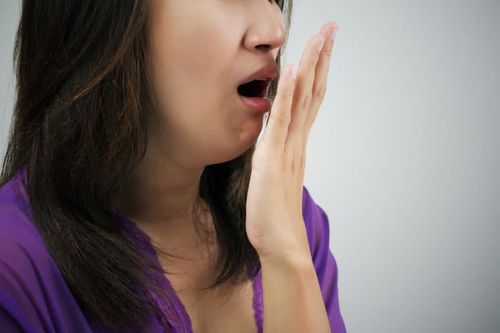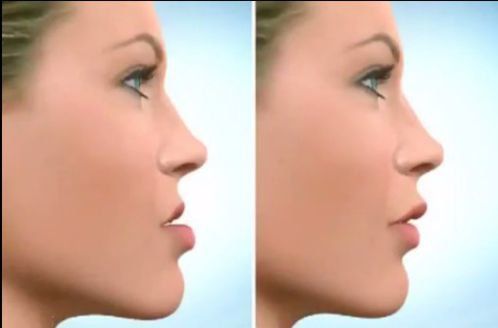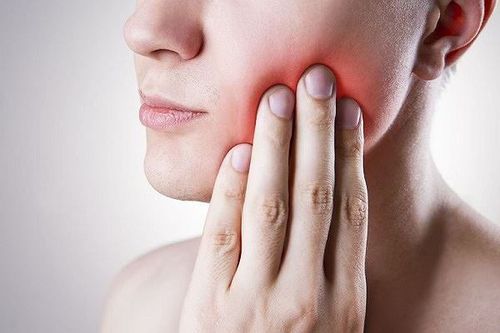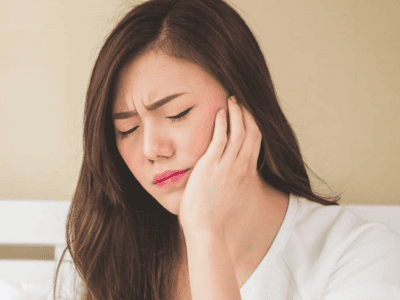Common symptoms after tooth extraction
After a tooth extraction, patients may experience several symptoms such as fever, swelling, pain, limited mouth opening, and bleeding. There’s no need to worry too much, as these are normal reactions following the procedure, including:
- Pain: Once the anesthesia wears off, patients will feel pain at the extraction site, which typically lasts about 3 days before gradually diminishing. The pain intensity is usually manageable. Generally, the dentist will prescribe pain relief medication after the extraction to eliminate discomfort completely.
- Swelling: This is an unavoidable reaction due to the manipulation of the gums during the extraction. The swelling occurs as new bone regenerates and fills the extraction site. This phenomenon can last about 2-3 days, depending on the individual’s level of trauma. The more careful and skillful the dentist is during the extraction, the less swelling and quicker healing you will experience.
- Fever: This symptom is observed in individuals whose bodies are sensitive to external stimuli, leading to fever after a tooth extraction. However, this condition typically lasts only a few days. If it persists longer, it is advisable to see a doctor to check the oral condition, as there may be a risk of infection or residual tooth fragments hindering the healing process.
- Bleeding: Bleeding is a physiological response that occurs in any surgical procedure, including tooth extraction. After the extraction, patients may notice bleeding for about 30 minutes, which should stop afterwards. During the first 24 hours, saliva may appear pinkish. This is not a major concern. However, if the bleeding soaks the gauze or is excessive, it is important to contact the dentist as soon as possible for evaluation.
- Limited Mouth Opening: Some patients may experience swelling at the jaw angle after wisdom tooth extraction, which can irritate the jaw muscles and cause muscle spasms, or the effects of anesthesia may limit mouth opening. After the extraction, patients should also avoid excessive talking or wide mouth opening, as this may increase bleeding.
What medications should be taken after a tooth extraction?
The medications recommended for patients before and after a tooth extraction mainly include pain relievers, anti-inflammatory drugs, and antibiotics to prevent infection.
- Pain Relievers: After a tooth extraction, pain is difficult to avoid. The dentist may prescribe pain relievers to help inhibit sensory nerve signals, thereby effectively alleviating pain. Pain relievers typically take effect within 24 to 72 hours and can be used for about 3 days, as the wound begins to stabilize and pain decreases. It is important to note that the effect of anesthesia lasts about 1 to 1.5 hours after the extraction, and pain may gradually appear once it wears off, so pain relief medication can be taken immediately if necessary. Acetaminophen is commonly used to treat mild to moderate pain and can also reduce mild fever. The recommended dosage for patients after a tooth extraction is a maximum of 2 tablets at a time, with doses spaced 4 to 6 hours apart, and not exceeding 4 tablets in a day. Caution is advised for individuals with a history of alcohol abuse, cardiovascular disease, anemia, or liver and kidney function problems, as they should avoid using Acetaminophen.
- Antibiotics: Antibiotics help strengthen the body’s ability to combat inflammation at the wound site and reduce swelling. The components in antibiotics help prevent the invasion of bacteria that could cause infection. Patients should take antibiotics for the first 5 to 7 days after the extraction. Common antibiotics prescribed after tooth extractions include Amoxicillin, Doxycycline, Tetracycline, and Spiramycin, often in combination with Metronidazole.
Things to note before and after tooth extraction
Tooth extraction is a procedure that can affect the body, so patients should avoid stimulants such as alcohol, beer, and tobacco, and ensure they get plenty of rest before the procedure. For women who are menstruating, pregnant, or breastfeeding, as well as patients with chronic conditions like diabetes or cardiovascular issues, it is important to clearly communicate with the dentist to develop a thorough treatment plan.
After the extraction, in addition to following the prescribed medication instructions, patients should also keep in mind the following tips to aid in the healing process:
- On the first day after the extraction, apply cold compresses occasionally for 15-20 minutes to help minimize pain.
- From the second or third day post-extraction, use warm compresses on the swollen area about 4 times a day to help dissolve bruising, reduce swelling, and alleviate pain.
- Maintain oral hygiene by using a soft toothbrush to gently clean the teeth, being careful not to disturb the extraction site. Avoid using fingers or sharp objects to touch the newly extracted area.
- Do not rinse your mouth with salt water for the first few days after the extraction, but you can start rinsing daily afterward to reduce inflammation. Use saline solution or diluted saltwater that is not too salty.
- Eat soft, liquid foods that are easy to swallow, such as porridge or soup, and include meat or fish.
- Avoid forceful spitting or sucking on the extraction site, as this can lead to bleeding.
- Minimize the consumption of alcoholic beverages and smoking for one week after the extraction to prevent infection and promote faster healing of the wound.
- Take time to rest and limit strenuous activities after the extraction to facilitate recovery.
- If the extraction site has a foul odor, or if the patient experiences prolonged pain or bleeding, contact the dentist immediately for prompt treatment.
I hope the information in this article has helped answer your question, "What medications should be taken after a tooth extraction?"
Please dial HOTLINE for more information or register for an appointment HERE. Download MyVinmec app to make appointments faster and to manage your bookings easily.













